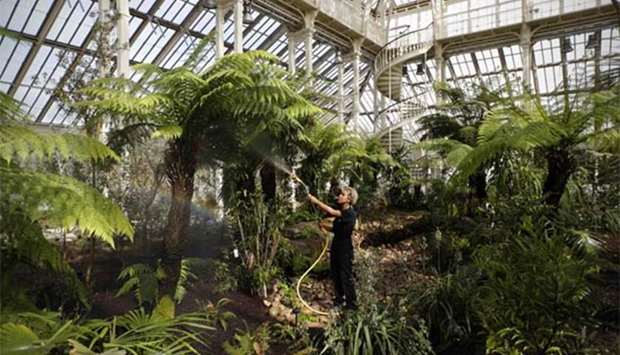A gleaming monument to the ambition and creativity of its age, the world's largest Victorian glasshouse reopens to the public on Saturday after a lengthy facelift to show off some of the world's rarest plants.
"Temperate House" in Kew Gardens in west London is large enough to house three jumbo jets and has been shut for the past five years for a £41mn ($57mn) renovation project.The botanical gardens glasshouse will house around 1,500 species split into geographical areas: Africa, the Americas, Australia, the Himalayas and Asia.
"It's been amazing watching this project unfold, the building emerge gloriously and some of the world's rarest plants safely reach their home," said Richard Barley, director of horticulture at Kew Gardens.
One of the rarest plants on display is the South African Encephalartos woodii, a palm-like cycad with leathery, green leaves.
Only one such specimen was ever found growing in the wild, and it has long-since disappeared from the natural world.
The wrought iron and glass structure was designed by esteemed Victorian architect Decimus Burton in 1860 and opened in 1863.

